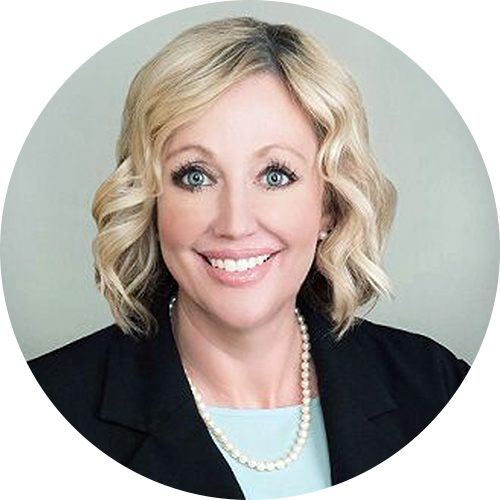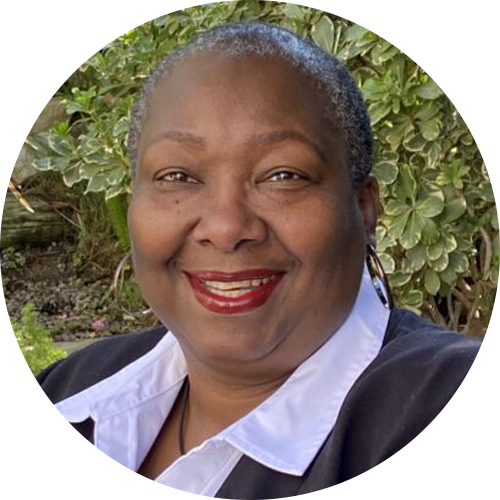Event Code of Conduct for AWHONN:
Purpose and Scope
AWHONN is dedicated to fostering a safe, inclusive, and welcoming environment where AWHONN stakeholders can learn, thrive, engage, and collaborate effectively. This Code of Conduct sets a foundation for fostering a supportive and inclusive environment by establishing conduct expectations for individuals who participate in AWHONN live events and virtual programs, including but not limited to board, council, committee, work group, and task force meetings, convenings, online discussions, AWHONN-adjacent events (e.g., a non-AWHONN sponsored dinner held in connection with the AWHONN Annual Conference), and all other AWHONN meetings and events, whether in person, via telephone, via Zoom or another online platform, or otherwise. The Code of Conduct is designed to properly balance legal compliance, the integrity and efficacy of AWHONN, and member safety while embedding appropriate safeguards to ensure that accused individuals receive a fair process. This policy applies to AWHONN members, leaders, and volunteers, including but not limited to officers, directors, speakers, exhibitors, sponsors, members, event attendees, and volunteers (“Covered Individuals”). By adhering to these standards, participants can contribute to a community that values growth, innovation, and mutual understanding.
AWHONN Standards of Conduct
Covered Individuals shall at all times abide by and conform to the following expectations in their roles for AWHONN:
- Communicate in a Courteous, Professional, and Respectful Manner. As a professional organization, AWHONN enables you to network with and learn from peers. Engage in honest, civil, and professional discussions. Obscene, vulgar, defamatory, abusive, and inappropriate language or images will not be tolerated. Be considerate of diverse opinions and viewpoints. Professional colleagues should always be treated with respect, without exception. In all exchanges, whether in person or online, participants should act in a dignified and courteous manner to avoid injuring others, their property, or their reputation, and participants should take care to avoid false, malicious, or improper actions.
- Tailor Contributions to Patient Care. Remarks at AWHONN events should be germane to patient care or AWHONN governance and operations. Religious, political, and other divisive commentary—unless related to scholarly discussions about patient care—are discouraged and may contravene AWHONN’s expectations of courtesy and professionalism.
- Discrimination and Harassment. AWHONN enforces a zero-tolerance policy for discrimination, harassment, or bullying. Discrimination is differential and unfavorable treatment based on race, color, religion, sex (including sexual orientation, gender identity, or pregnancy), national origin, age, disability, or genetic information, or any other protected characteristic under applicable federal or state law. Harassment is unwelcome conduct that is based on race, color, religion, sex (including sexual orientation, gender identity, or pregnancy), national origin, age, disability, or genetic information, or any other protected characteristic under federal or state law where 1) enduring the offensive conduct becomes a condition of access to a member benefit or participation in a member event, or 2) the conduct is severe or pervasive enough to create an environment that a reasonable person would consider intimidating, hostile, or abusive. Petty slights, annoyances, and isolated incidents (unless extremely serious) do not amount to harassment. Bullying is unwanted aggressive behavior targeting a person or group of people that involves an actual or perceived power imbalance and repeated aggression. Bullying can be verbal (e.g., ridicule or disparaging remarks); it can be exacted through intimidation; or it can take the form of professional interferences, such as sabotaging another’s success.
- Disruptive Behavior. Covered Individuals shall not disrupt presentations, meetings, or events. Disruptions include things like interruptions, noise, or behavior that interferes with or frustrates the event’s purpose.
- Session Recordings and Screenshots. Covered Individuals may not record sessions without written authorization from both the presenters and AWHONN.
- Live and Virtual Presentations. Covered Individuals who present live or virtual educational sessions or provide materials in connection with such presentations shall either create original works or obtain all necessary permissions or licenses to present or distribute copyrighted content. Covered Individuals shall also take precautions to ensure that presentation content, and content is accompanying materials, is truthful to the best of their knowledge, and does not defame any individual or corporation. Unless otherwise permitted in writing by AWHONN, Covered Individuals shall not distribute paper copies of promotional or educational materials at AWHONN events.
- Advertising. Unless otherwise authorized to do so pursuant to a separate Agreement with AWHONN (e.g., a sponsorship agreement or exhibitor agreement), Covered Individuals shall not use AWHONN events as platforms to promote, market, or sell products or services.
- Business Interference. Covered Individuals shall not persuade or attempt to persuade any member, exhibitor, advertiser, sponsor, subscriber, supplier, contractor, or any other person or entity with an actual or potential relationship to or with the association to terminate, curtail, or not enter into its relationship to or with the association, or to in any way reduce the monetary or other benefits to the association of such relationship.
- Antitrust. Covered Individuals shall avoid collusion on matters that may amount to a violation of federal and state antitrust laws. Collusion includes, but is not limited to, member discussions (whether in person or virtual) implicating price-fixing, bid-rigging, or resale price maintenance; tying and reciprocity; exclusive dealing arrangements; monopolization; output restrictions; group boycotts; prices, fees, or pricing policies; staff salaries; terms of sale; specific R&D sales or marketing plans; restrictions on output or production; division of customers, territories, or locations; or any other information that may amount to an unfair restraint on trade. Covered Individuals shall, at all times, abide by any ABC antitrust policy that is in effect.
- Health and Safety. No Covered Individual shall engage in conduct that imposes inherent danger to the health, safety, or well-being of another person.
- Comply with Applicable International, Federal, State, and Local Laws. Reporting Violations. Covered Individuals shall at all times comply with all applicable international, federal, state, and local laws and regulations and will fully cooperate with the association when requested to do so by those institutions and their persons set in authority as are required to uphold the law.
Reporting Alleged Infractions
Any member, volunteer, leader, employee, or third party may report an alleged violation of this Code of Conduct to ethics.awhonn.org.
Resolution Process
- Preliminary Assessment. The Ethics and Compliance Committee (ECC) shall conduct a preliminary review to evaluate whether the report, if true, would amount to a policy violation.
- Notice. If the ECC determines that the allegations, if true, would amount to a policy violation, a member of the ECC shall notify any member who is accused of misconduct that violates this Code (the “Accused Member”) in writing of the alleged misconduct and the specific provision of the Code that is implicated.
- Opportunity to Be Heard. The Accused Member shall be given an opportunity either in person or in writing to respond to the allegations so that the ECC can make a fully informed decision.
- Confidentiality. The ECC shall endeavor to keep the matter confidential, to the extent that it is able, although there may be circumstances where the ECC must disclose limited identifying information to fully and fairly investigate the allegations.
- Determination. The ECC shall make a determination as to whether the allegations have been substantiated by a preponderance of the evidence, and if the allegations are substantiated, to deliberate as to an appropriate remedy.
Fair Proceedings/Bias
AWHONN shall take care to ensure that no decision makers harbor an irreconcilable conflict that might bias the proceedings. Any ECC member or staff person with a conflict shall recuse themselves from their designated role.
Immediate Removal from AWHONN Events
Certain egregious misconduct, as determined in AWHONN’s sole reasoned discretion, shall result in immediate removal from an AWHONN live or virtual event. Examples of egregious misconduct that may result in immediate removal from an AWHONN event include, but are not limited to, credible allegations of sexual harassment, use of racial slurs, behavior that jeopardizes the safety of event attendees, vandalism, or behavior calculated to intentionally disrupt a session. The accused individual shall be afforded the opportunity to contest the decision at a later date, at which time accused individual may also be called to account for additional alleged violations of AWHONN policies or this Code of Conduct.
Enforcement and Remedies
The ECC may impose any remedy commensurate with a substantiated infraction, provided that the remedy is allowable under AWHONN’s Bylaws and policies. Appropriate remedies may include, but are not limited to:
- Warning
- Immediate removal from the event without warning or refund
- Temporary or permanent ban from future events hosted by the organization
- Temporary or permanent ban on contacting AWHONN staff and/or volunteer leaders
- Temporary or permanent ban on holding AWHONN leadership positions
- Temporary or permanent ban on receiving awards
- Further actions as deemed necessary to ensure a safe environment
- Any other reasoned sanction permitted by law and AWHONN Bylaws that is commensurate with the substantiated infraction.
Appeals
Once the decision has been communicated to the Member, the Member may submit a written appeal to the ethics@awhonn.org within five (5) business days. The initial decision maker shall not be involved in the appeal process. Appeals must be based on one or more of the following grounds: (1) an arbitrary or capricious determination; (2) a departure from the procedures described in this Code of Conduct that significantly and materially impacted the decision, (3) a decision influenced by bias or a material conflict of interest; (4) a disproportional sanction relative to the misconduct, or (5) a decision at odds with applicable federal, state, or local law The written appeal should outline specific reasons why the Board’s decision should be reviewed. The [Designee] shall review the appeal and decide whether to (i) reject the appeal or (ii) send the appeal back to the [designated staff person(s)/disciplinary body] with instructions as to (x) why the matter is being sent back, (y) how to correct the matter, and (z) a timeline for re-convening to correct the matter and re-deliberate.
False Reporting
Knowingly making a false accusation of harassment, discrimination, retaliation, or any other violation of this Code of Conduct, or knowingly providing false information in the course of an investigation of a report, may be grounds for appropriate disciplinary action. A complaint made in good faith, even if found to be unsubstantiated, will not be considered a false accusation.
Retaliation
Retaliation against an individual for reporting a Code violation or for participating in an investigation of a Code violation is strictly prohibited. Retaliation is the mistreatment of or the threatened mistreatment of an individual for filing a complaint pursuant to this Code of Conduct or participating in any manner in AWHONN’s resolution of a complaint filed pursuant to this Code of Conduct.
Acts of retaliation should be reported immediately and will be promptly addressed.
Effective: May 30, 2025






















